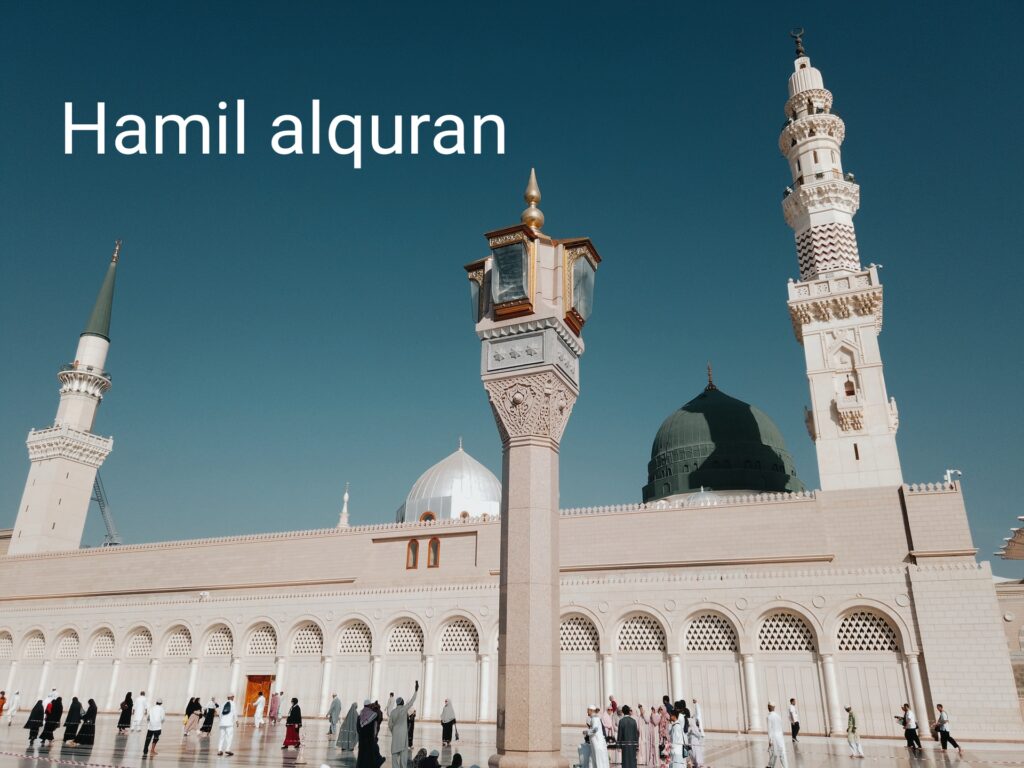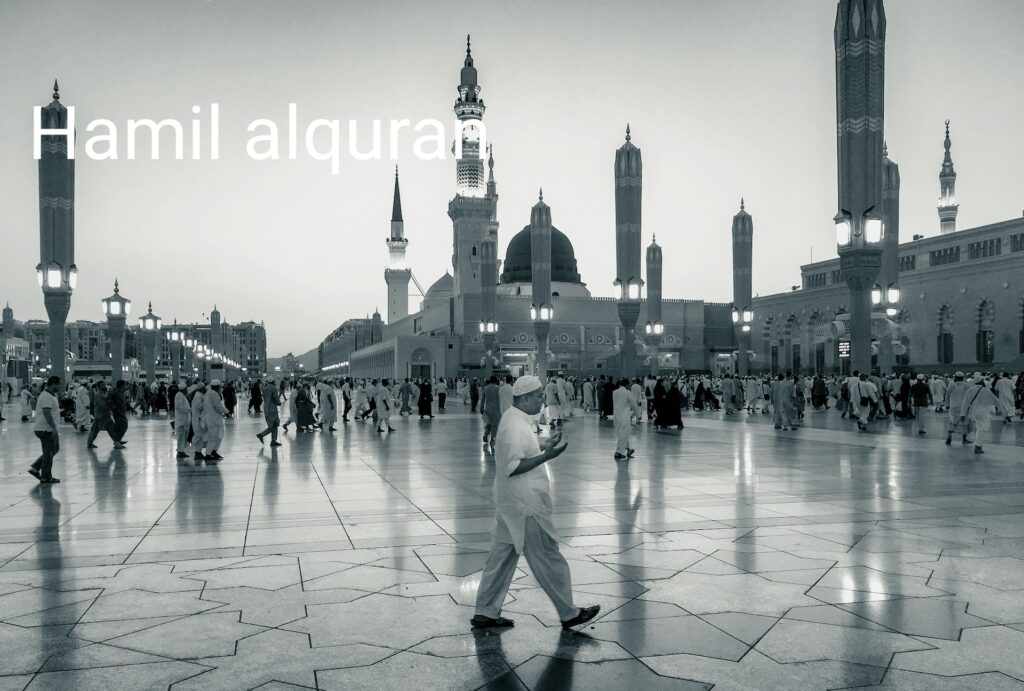Hajj or known as the pilgrimage to Mecca is the fifth of the five pillars of Islam, and this pillar also includes many provisions related to it, such as ability, which means that this pillar is not obligatory for all Muslims, but rather for those who have the material and physical ability to perform this pillar.
Just as a pilgrim in Mecca has a great virtue and a great reward with Allah Almighty, such as forgiveness of sins and obtaining the highest ranks, this pillar also includes special provisions that the Muslim performs.
Therefore, we will learn about the provisions of the fifth pillar of Islam in detail, and we will also discuss all the provisions related to this pillar and the government regarding its legitimacy.

What is the hajj pilgrimage to Mecca meaning in Islam?
Al-Hajj in Islam is a language meaning the purpose of something. And legally: the intention of the Sacred House and the great shrines, and coming to them, at a specific time, in a specific way.
It is the character known in the Sharia of:
- Ihram
- Talbiyah
- Standing at Arafah
- Circumambulating the House
- Striving between Safa and Marwah
- Standing at the holy sites and stoning the Jamarat
- The subsequent legitimate actions in it, for all of these are from the completion of the intention of the House.
The Hajj Definition
The meaning of the pilgrimage in the language refers to the intention of the great thing, but in legal terminology, it is the intention of the Sacred House of Allah.
To perform specific rituals, as is defined as visiting a specific place, at a specific time, with the intention of performing the rituals of Hajj after entering the ihram for it.
And the place is: the Kaaba (masjid al-haram), and Arafah, and the specific time is: the months of Hajj, namely: Shawwal, Dhul-Qa’dah, and Dhul-Hijjah.
The Significance of Hajj Values
Allah Almighty instituted the obligation of Mecca Pilgrimage in Islam to His Sacred House for great wisdom:
- Muslims gather to perform specific rituals at a specific time and place. By doing so, faith is renewed in their hearts, and the wisdom of the legitimacy of the hajj is manifested in every ritual that the pilgrims perform.
- During the journey to Mecca, the pilgrim understands the meaning of travel and the hardships that accompany it, which tames the soul to endure the difficulties and increases the mental capacity to reach the desired goal.
- The act of entering into Ihram from the designated Miqat teaches respect for time and its beneficial utilization.
- Abstaining from the prohibited acts of Ihram is a manifestation of the Muslim’s commitment to obeying the commands of Allah and the ability to restrain desires in accordance with the objectives and commands of the Sharia.
- The act of Tawaf signifies the declaration of servitude to Allah, as Muslims realize that they are like one body when standing at Arafat.
- They do not differ from each other based on color, race, or status, which highlights the meaning of human brotherhood.
- The gathering of pilgrims in Muzdalifah demonstrates the manifestations of true obedience to Allah. And the ability of the soul to overcome the whispers of Satan when throwing stones, and the pilgrim proves that Allah is greater than everything by reciting the Takbir.
- The sacrifice of the animal shows a desire to refine the human soul and protect it from stinginess and greed. As the Muslim realizes the need of his Muslim brother, the relationship between Muslims is strengthened by feeling each other’s needs.
- The act of Tahalul, removing the Ihram, is a way to get rid of sins, and the hearts of Muslims unite in Mina with love and affection as they gather for remembrance and supplication, and Muslims circumambulate the Kaaba.
By doing so, the Islamic community achieves what Allah and His Messenger wanted, which is to be a community in which the meanings of Islamic values are manifested, such as brotherhood, love, and unity.

Who Must Perform Hajj To Mecca?
That there are conditions for Pilgrimage, if they are not fulfilled in a person, then Hajj is not obligatory for him. Which:
- Islam.
- Mind.
- Puberty.
- Freedom.
- Ability.
The Hajj Steps In Order
Hajj in Islam has special rituals that a Muslim performs during his journey, and below we will learn about this method.
Islamic hajj is mandatory for all physically and financially able Muslims to perform Pilgrimage at least once in their lifetime. The rituals of Hajj are as follows:
1- Ihram
The first ritual of Hajj is Ihram, which involves entering a state of purity and wearing special white garments (two unstitched clothes for men and normal Islamic dress for women) that symbolize equality and unity.
2- Tawaf
After entering the state of Ihram, pilgrims perform Tawaf, which is circumambulating the Kaaba (a cube-shaped structure at the center of the Grand Mosque in Mecca) seven times counterclockwise.
3- Sa’i
After completing Tawaf, pilgrims perform Sa’i, which involves walking seven times between the hills of Safa and Marwa. This commemorates the story of Hagar, the wife of Prophet Ibrahim, who ran between the hills searching for water for her infant son.
4- Wuquf Arafat
After Sa’i, move to Mina and start to prepare for the greatest step i Hajj, the 9th day of the Hijri month of Dhu al-Hijjah, pilgrims go to the plain of Arafat, where they spend the day in prayer and supplication, seeking forgiveness from Allah.
5- Muzdalifah
After sunset, pilgrims move to Muzdalifah, where they spend the night and perform Maghrib and Isha prayers.
6- Stoning of the devil
On the 10th day of Dhu al-Hijjah, pilgrims perform the stoning of the devil ritual by throwing seven pebbles at three pillars in Mina. This symbolizes the rejection of Satan and his temptations.
7- Animal sacrifice (Nahr)
After the stoning of the devil ritual, pilgrims perform animal sacrifice, where they slaughter an animal (usually a sheep, goat, or cow) to commemorate the willingness of Prophet Ibrahim to sacrifice his son Ismail as an act of obedience to Allah.
8- Tawaf al-Ifadah
After the animal sacrifice, pilgrims perform Tawaf al-Ifadah, which is a repeat of the Tawaf ritual performed on the first day of Hajj.
9- Sa’i al-Marwah
After Tawaf al-Ifadah, pilgrims perform Sa’i al-Marwah, which is a repeat of the Sa’i ritual performed on the first day of Hajj.
10- Farewell Tawaf
The final ritual of Hajj is the Farewell Tawaf, which involves circumambulating the Kaaba one last time before leaving Mecca. This symbolizes the end of the pilgrimage and the pilgrims’ return to their normal lives.

The Benefits of Hajj
Performing the Islamic duty of al hajj results in numerous rewards and virtues for Muslims, including:
- Achieving sincerity to Allah -Exalted and Glorified be He- in the human soul. When the pilgrim puts on the ihram garment and avoids showing off or adorning themselves. It expresses the meanings of humility, submission, and subservience to Allah -Glorified be He- to obtain His mercy and forgiveness.
- Giving thanks to Allah for the countless blessings that He bestowed upon His servants, such as health and wealth. For which the pilgrim exerts themselves and spends their wealth in order to attain nearness to Allah -Glorified be He-. Therefore, giving thanks to Allah is obligatory for Muslims.
- Performing the pillars and duties that Allah has enjoined upon Muslims and that He loves and is pleased with, such as Hajj, is one of the pillars of Islam.
- Training oneself to combat their soul, which is why the Prophet -peace be upon him- called Hajj a form of Jihad in the way of Allah.
- Obtaining great rewards for performing the accepted Hajj in the prescribed manner.
- Manifesting the symbols of Allah -Glorified be He- and exalting Him through Hajj rituals such as tawaf, remembrance, standing at Arafat, and Sa’i between Safa and Marwah, among other rituals.
- Nurturing and refining the human soul, renewing faith in it, and renewing the covenant with Allah -Glorified be He- through obeying His commands and repenting from sins and transgressions.
- Forgiveness of all sins and transgressions and the removal of anything that burdens the soul.
- The invitation to the path of Allah, as hajj is one of the greatest means of spreading the Islamic invitation and an opportunity for callers to follow the best methods of invitation that are most beneficial and impactful.
Conclusion
In conclusion, Hajj is the fifth and last pillar of Islam, and this pillar used to include many provisions related to it in addition to many benefits and virtues that we mentioned in detail.
Among the provisions and conditions related to this pillar is ability, as it is required that the material and physical ability of the Muslim be achieved. If this condition is not met, then the pillar is forfeited.
If you are interested in learning more about the pillars of Islam and the significance of Hajj, consider enrolling in our Islamic studies course.
